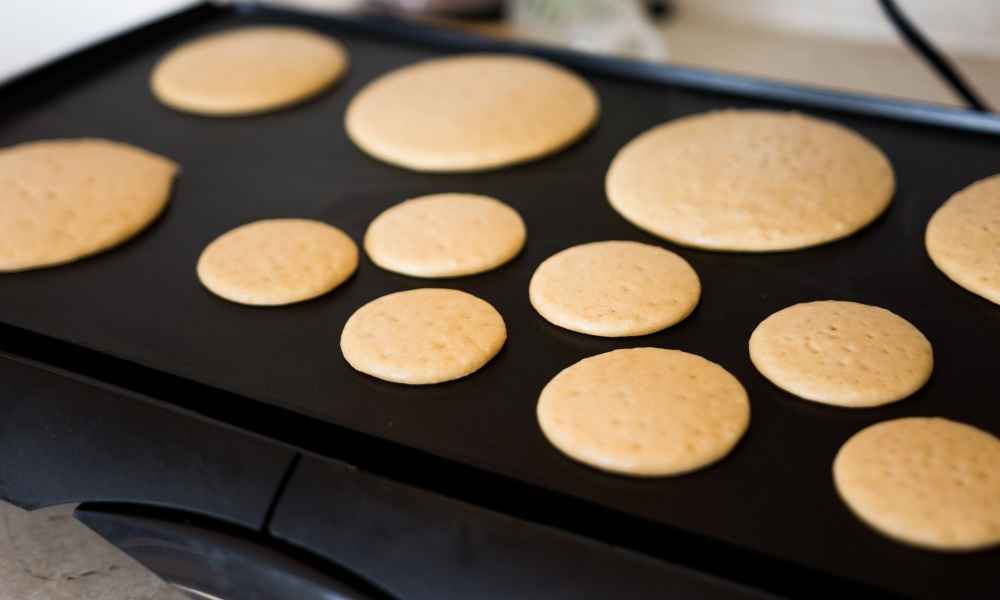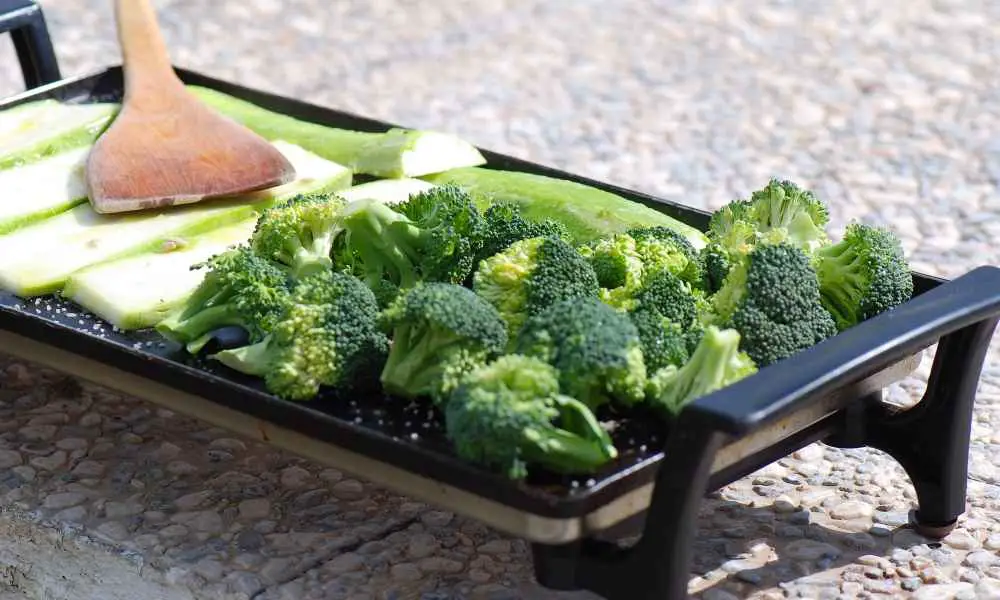Frying fish is a delicious way to enjoy seafood, but it can leave a lingering smell in your house that can be hard to get rid of. Fortunately, there are several ways to fry without smelling up the house. With a few simple tips and tricks, you can keep your home smelling fresh while still enjoying your favorite fried dishes.
One way to avoid the smell of fried fish is by using creamy peanut butter. Simply place a spoonful of creamy peanut butter in the frying pan while cooking. This will help absorb the odor and leave your home smelling fresh. Another way to minimize the smell is to cook your fish outside on a grill or in a deep fryer. This will keep the smell outside and prevent it from lingering in your home.
In addition, it’s important to choose the right type of fish when frying. Certain types of fish, such as salmon and tuna, have a stronger odor than others. Opt for milder fish, such as cod or halibut, to minimize the smell. And always clean up any spills or splatters immediately to prevent the smell from lingering. With these tips, you can enjoy your favorite fried dishes without worrying about the smell.
Essential Supplies
When it comes to frying food, having the right supplies is essential. Here are the three main supplies you will need to fry without smelling up the house:
Oil
Choosing the right oil is crucial when it comes to frying. You want to use an oil with a high smoke point, which means it can handle high temperatures without burning and producing smoke. Some great options include vegetable oil, canola oil, and peanut oil.
It’s also important to use the right amount of oil. Too much oil can cause splatters and increase the risk of a fire, while too little oil can cause your food to stick to the pan. A good rule of thumb is to use enough oil to cover the bottom of the pan by about 1/4 inch.
Skillet or Pot
When it comes to choosing a skillet or pot, you want to select one that is large enough to hold your food without overcrowding it. Overcrowding the pan can cause your food to cook unevenly and produce more steam, which can lead to more odors.
A cast-iron skillet is a great option for frying because it distributes heat evenly and retains heat well. If you don’t have a cast-iron skillet, a stainless steel or aluminum skillet will also work well.
Other Supplies
In addition to oil and a skillet or pot, there are a few other supplies you may want to consider to help reduce odors when frying:
-
Splatter screen: A splatter screen can help prevent oil from splattering and reduce the amount of steam produced, which can help reduce odors.
-
Paper towels: Use paper towels to blot excess oil off your food after frying. This can help reduce the amount of oil and steam produced, which can help reduce odors.
-
Ventilation: Make sure you have good ventilation in your kitchen when frying. Open windows, turn on the fan above your stove, or use a range hood to help remove odors and steam from your kitchen.
By using the right supplies and following a few simple tips, you can fry without smelling up the house.
Preparation
When it comes to frying food, preparation is key to ensuring a delicious and odor-free experience. Here are some tips to ensure you’re ready to fry without any unwanted smells.
Choose the Right Oil
The type of oil you choose can make a big difference in the final product and the smell it produces. Oils with a high smoke point, such as canola, vegetable, or peanut oil, are ideal for frying because they can withstand high temperatures without burning. Avoid using oils with a low smoke point, such as olive oil, as they can produce a strong odor when heated.
Heat the Oil
Before frying, make sure to heat your oil properly. You want the oil to be hot enough to cook the food quickly and create a crispy exterior, but not so hot that it burns or produces smoke. Use a thermometer to ensure the oil is between 350-375°F. If the oil is too cool, the food will absorb too much oil and become greasy. If the oil is too hot, it can burn the food and produce a strong smell.
Coat the Food
Coating your food in a batter or breading can help prevent the oil from penetrating the food and creating a greasy texture. It can also help to add flavor and texture to the final product. Make sure to coat the food evenly and shake off any excess before frying.
By following these preparation tips, you can ensure a successful and odor-free frying experience.
Frying Techniques
When it comes to frying, there are different techniques you can use to achieve crispy and delicious results without filling your home with unpleasant odors. Here are some of the most popular frying techniques:
Pan Frying
Pan frying is a great technique for cooking small pieces of food, such as chicken breasts, fish fillets, or vegetables. To pan fry, heat a small amount of oil in a non-stick skillet over medium-high heat. Place the food in the skillet and cook until golden brown on one side, then flip and cook until done on the other side.
To minimize the amount of smoke and odors produced during pan frying, make sure the food is dry before placing it in the skillet. Also, use a splatter screen to prevent oil from splattering all over the stove.
Deep Frying
Deep frying is a technique that involves submerging food in hot oil until it is cooked through and crispy. This technique is often used for foods like French fries, chicken wings, and doughnuts.
To deep fry, heat a large pot of oil to the desired temperature (usually between 350°F and 375°F). Carefully place the food in the hot oil and cook until golden brown and crispy. Use a slotted spoon or tongs to remove the food from the oil and place it on a paper towel-lined plate to drain excess oil.
To minimize odors and smoke during deep frying, make sure the oil is hot enough before adding the food. Also, use a pot with a tight-fitting lid to contain the smells.
Stir Frying
Stir frying is a popular technique in Asian cuisine that involves cooking small pieces of food quickly over high heat. This technique is often used for dishes like stir-fry vegetables, noodles, and rice.
To stir fry, heat a small amount of oil in a wok or large skillet over high heat. Add the food and stir constantly until cooked through and crispy. Use a slotted spoon or spatula to remove the food from the skillet and serve immediately.
To minimize odors and smoke during stir frying, make sure the food is dry before adding it to the skillet. Also, use a well-ventilated area or turn on the exhaust fan to remove any smoke or smells.
Clean-Up Tips
After frying, the last thing you want is to be left with a messy kitchen and a lingering smell. Proper clean-up is essential to avoid these problems. Here are some tips to help you clean up after frying without any hassle.
Proper Disposal of Oil
The first thing you need to do after frying is to dispose of the oil properly. Pouring oil down the drain can clog your pipes and harm the environment. Instead, let the oil cool down and then transfer it to a container with a lid. You can then dispose of the container in the trash. Alternatively, you can recycle the oil by taking it to a recycling center.
Cleaning the Skillet or Pot
Cleaning the skillet or pot after frying can be a challenge, but it’s necessary to remove any leftover oil and food particles. Here’s how you can do it:
- Wait for the skillet or pot to cool down before cleaning it.
- Use a spatula or scraper to remove any food particles from the skillet or pot.
- Wipe the skillet or pot with a paper towel to remove any excess oil.
- Fill the skillet or pot with hot water and add a few drops of dish soap.
- Let the skillet or pot soak for 10-15 minutes.
- Scrub the skillet or pot with a non-abrasive sponge or brush.
- Rinse the skillet or pot with hot water and dry it with a clean towel.
By following these tips, you can ensure that your kitchen stays clean and fresh after frying. Remember to always dispose of oil properly and clean your skillet or pot thoroughly to avoid any unwanted smells or messes.
Frequently Asked Questions
How to reduce frying odors?
To reduce frying odors, you can try using an air fryer or a deep fryer with a built-in filter. You can also try cooking with a lid on the pan to trap the odors. Additionally, you can add some vinegar or lemon juice to the frying oil to help neutralize the odor.
What are the best ways to avoid frying smells?
The best ways to avoid frying smells are to cook outside, use an air fryer or a deep fryer with a built-in filter, or cook with a lid on the pan to trap the odors. You can also try using a fan or opening windows to help ventilate the area.
How to fry food without the smell lingering?
To fry food without the smell lingering, you can try using an air fryer or a deep fryer with a built-in filter. You can also try cooking with a lid on the pan to trap the odors. Additionally, you can add some vinegar or lemon juice to the frying oil to help neutralize the odor.
What can I do to prevent frying odors?
To prevent frying odors, you can try cooking outside, using an air fryer or a deep fryer with a built-in filter, or cooking with a lid on the pan to trap the odors. You can also try using a fan or opening windows to help ventilate the area.
How to get rid of frying smells?
To get rid of frying smells, you can try boiling some vinegar or lemon juice in a pot on the stove to help neutralize the odor. You can also try placing bowls of baking soda or activated charcoal around the house to absorb the odor.
How to cook fried food without the smell?
To cook fried food without the smell, you can try using an air fryer or a deep fryer with a built-in filter. Another option is to cook the food outside on a grill or a portable burner.



